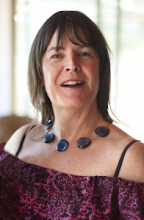Event Publicity 1001
Forget Event Publicity 101. Let’s do Event Publicity 1001 and see if we can’t fast-track event publicists with a few things I’ve learned in more than 20 years of event publicity. People don’t seem to understand how event publicity works best. They don’t get how much the publicist needs to know about the people involved to get a great campaign up. It’s not a one-size-fits-all occasion – no matter how big and well-known your event is. And don’t presume media will dig through your program, guest list or ambassadors list; Google names and come up with story angles. No way. If you’re a publicist or event organiser – that’s your job.
I’ve publicised many major and small events this year: international; national and local events. My method is always the same – large or small; one-day or week-long; awards event or art show. The question is always the same - what is the content of this media campaign? What are the stories media will want to tell about the event and the people?
R U OK?Day is a suicide prevention campaign which encourages Australians to check in on someone who may be having a hard time; and ask “Are you okay?” The challenge for publicity was to find the stories that spoke to the slogan. It called for positive media coverage using stories of reaching out. The campaign needed case studies; where asking “Are you okay?” had made a difference.
R U OK?Day did a great job of finding a number of celebrity and expert ambassadors. Plus they had an incredible network of mental health professionals and direct contact with everyday people with stories of reaching out. These people and their stories became the wonderful content for the media campaign.
It took a lot of hitting the phones by the R U OK?Day and KatieMac Publicity teams to see what kind of stories people wanted to tell; then it was a matter of trying to get the right case study for the media requests which came in.
We had a wonderful opportunity for two people to appear in a Saturday magazine. It would be a lovely photo story about someone who had reached out to another person. After contacting several mental health organisations, we were directed to Ann O’Neill of angelhands (an organisation which supports people affected by any form of violence). Ann approached one of angelhands’ clients, who agreed to be interviewed. We managed to squeeze the interview and photograph in the day before Ann flew overseas. It came out as a beautiful and memorable Saturday magazine story.
Why use this example? It shows the leg work and research that goes into getting high quality media coverage. You might have seen some of the R U OK?Day publicity. Now you have an idea of what can go on behind the scenes to get a single story!

